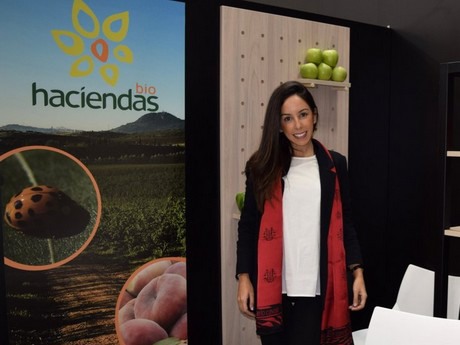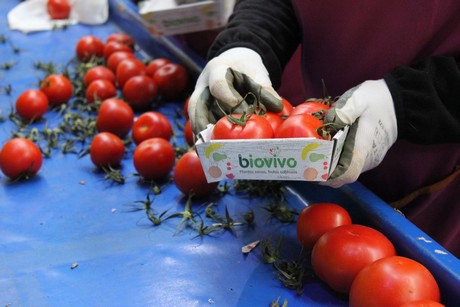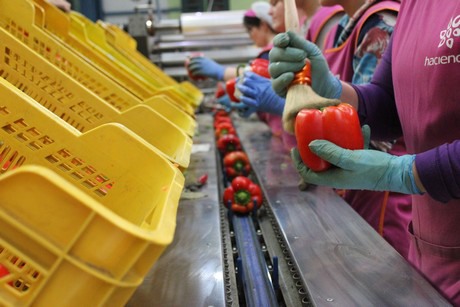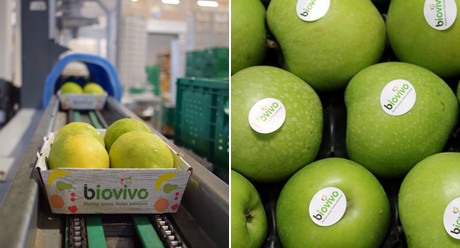"Companies that didn't have any organic products in the previous year have already started adding some to their range, while many of the companies that already have plenty of experience in the production and sale of organic products are betting on the use of more sustainable packaging without the use of plastic," said Silvia Llamas, Marketing Manager of the Spanish company Haciendas Bio, in reference to the latest edition of the Fruit Logistica fair in Berlin, which reflects the current state of the organic market.

This company, which is an organic crop specialist, is launching 19 new organic leafy vegetable products grown in Cuevas, Almeria, as well as new plum varieties. With these, they hope to be able to meet different consumer tastes.
At the moment, the main objective for Haciendas Bio is to educate consumers on the values and benefits of this type of agriculture, so that the organic market can continue to grow in Spain.

"While Spain is a Mediterranean country with a consumer profile that is very similar to that of Italy, the purchase of organic products is still too low. Spanish consumers believe that the biggest difference is in the price, and although chemicals are used for the cultivation of conventional products, this doesn't stop consumption. There is just no awareness about the possible consequences on their health. This is something that is changing little by little. We have noticed that there is already a greater concern about the origin of food and how to produce it, especially among younger people, which is causing consumption to grow exponentially in recent years, coinciding with the economic recovery in Spain.
A study by Qantar World Pannel reported that in 2017, the consumption of organic products grew by more than 14%, compared to the 2% increase in conventional consumption. Consumption is recording double digit growth. "In the beginning, it could be argued that the organic would just be a passing trend, but the evidence shows that it is here to stay and that it will continue to grow," says Silvia Llamas.
"Suddenly, many companies want to do without plastic in their containers"
Haciendas Bio launched the Biovivo brand for the domestic market two and a half years ago. It is a 100% sustainable brand, even in the packaging, for which alternatives to plastic are used.

"Coinciding with the popularization of the antiplastic social movement, we became pioneers in this sense, since until then there was no company in Spain offering fruit and vegetables packed with only cardboard trays, organic cotton meshes and bags made one hundred percent from recycled paper. Today, many companies want to use this kind of packaging, although it isn't easy to do without plastic. Perishable products need some humidity and not all supermarkets have refrigeration, and in those cases, plastic ensures a longer shelf life. Moreover, plastic also makes the product more visible while in the container. For this reason, using only cardboard containers is a big challenge, and we are working every day to achieve that goal," explains Silvia Llamas.
Fraud, one of the main threats
There are increasingly more operators of conventional products that are offering the organic as conventional, or vice versa, depending on the price, making it often difficult to know what is organic and what isn't.

According to Silvia Llamas, the requirements for a farm to be considered organic are not always met, or are kept to a minimum. In this sense, it is important for all companies to be audited through fiscal and mercantile registers, thereby reducing the risk of fraud, as farm practices become open to public scrutiny. It is necessary to guarantee the authenticity of organic products under commitment and transparency standards."
Fraud is one of the main threats for this sector, as it can seriously tarnish its reputation and cause buyers to have doubts about the good work of the companies specialized in organic or biodynamic farming, such as HaciendasBio."
For more information:
Silvia Llamas
Haciendas Bio
C/ Julio Cienfuegos Linares 8,2, 2A
M: +34 686279363
sla@haciendasbio.com
www.haciendasbio.com
